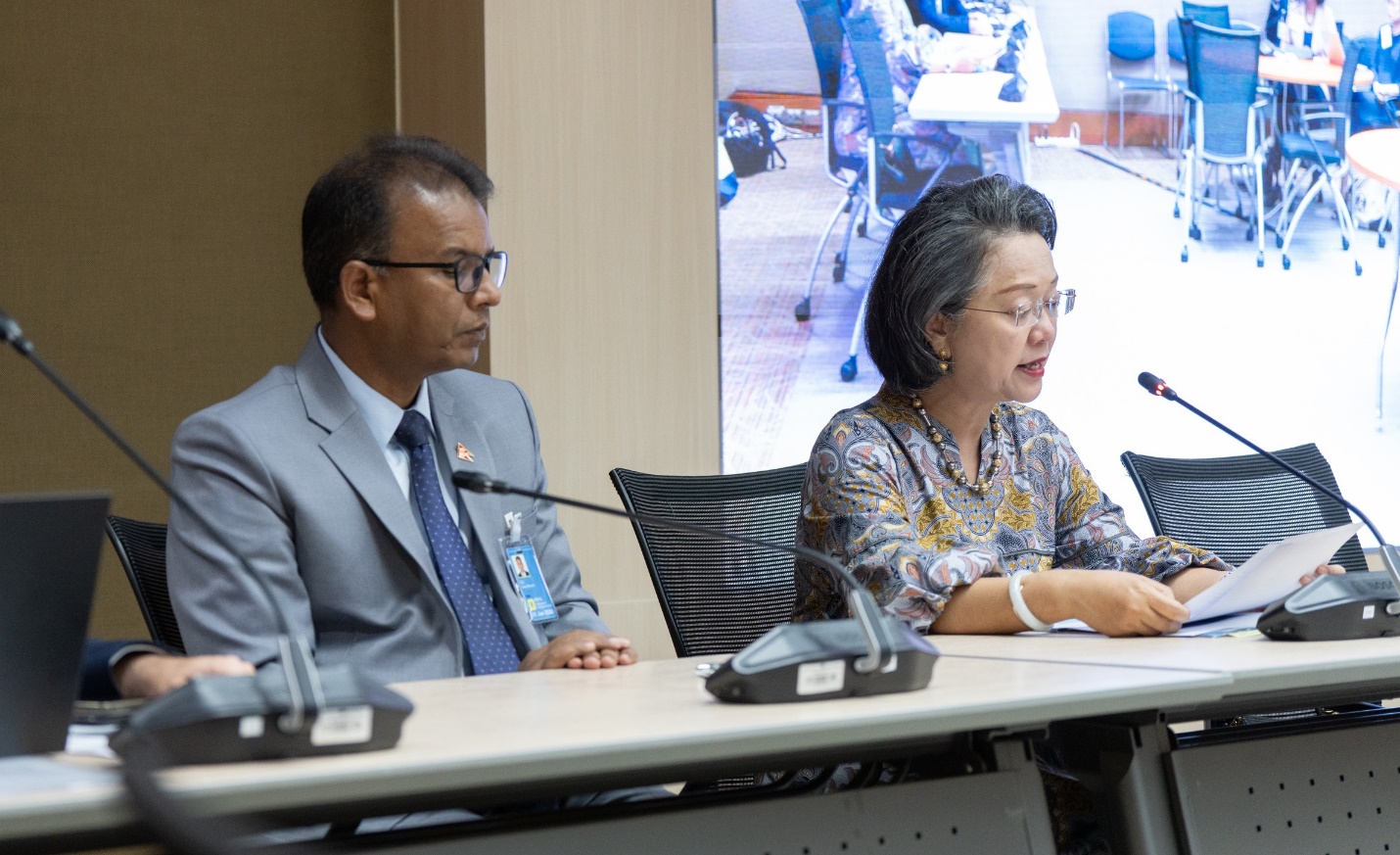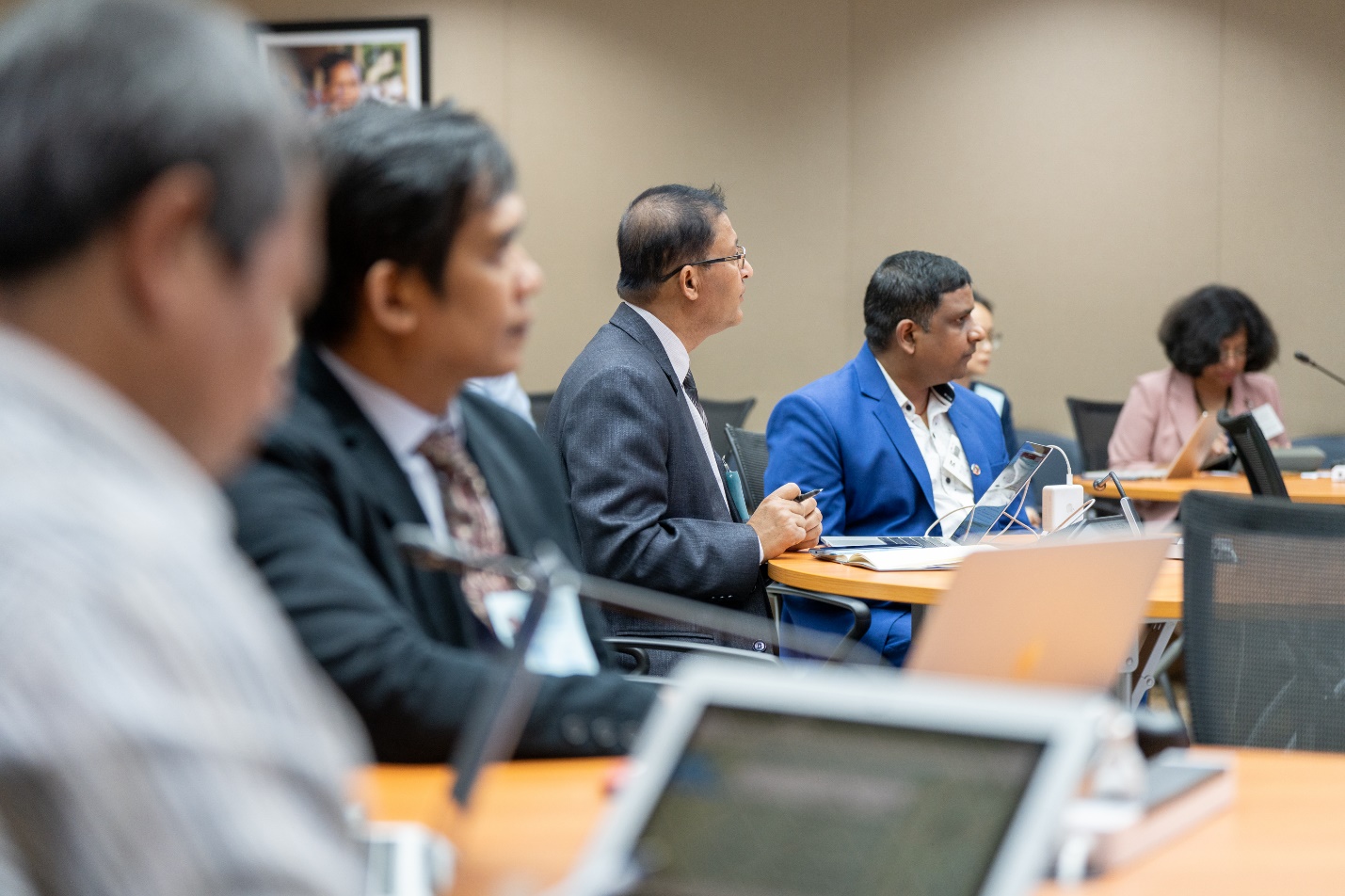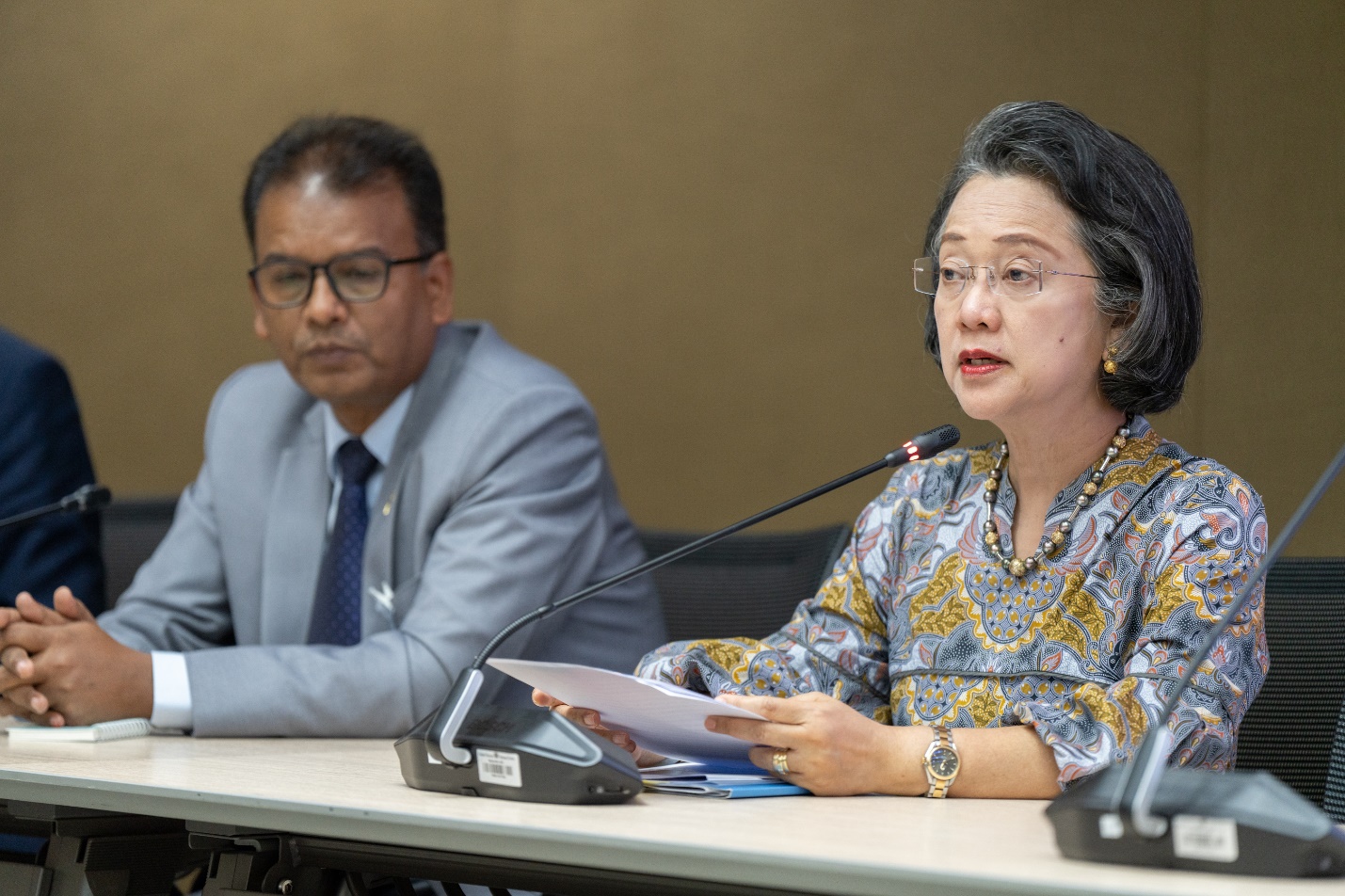Governments of Nepal and the Philippines discuss increasing agricultural productivity through testing standards for sustainable agricultural machinery at 11th APFSD

On 23 February 2024, alongside the 11th Asia-Pacific Forum on Sustainable Development, CSAM supported the Governments of Nepal and the Philippines in co-organizing a side event on the theme of “Increasing agricultural productivity through testing standards for sustainable agricultural machinery”.
The event was opened by H.E. Mr. Dhan Bahadur Oli, Ambassador Extraordinary and Plenipotentiary and Permanent Representative of Nepal to ESCAP, and Ms. Armida Salsiah Alisjahbana, the Under-Secretary-General of the United Nations and Executive Secretary of ESCAP, who highlighted the role of agricultural mechanization in building food security through increased yields, as well as an improvement of farmer’s working conditions and livelihoods. On behalf of the Philippines, Dr. Arthur Fajardo, Director of the Agricultural Machinery Testing and Evaluation Center, reiterated the commitment to promote the mutual recognition of testing results harmonized testing codes for agricultural machinery for the improvement and sustainability of the agricultural sector.
Ms. Estrella Penunia, the Secretary General of the Asian Farmers Association spoke on the region’s farmers’ need for agricultural machinery and the importance of internationally recognized testing for ensuring safer and efficient machinery to become available.
Following presentations on the multilateral work for harmonizing standards in ASEAN and agricultural machinery testing in OECD, the event featured the achievements of the governance of Nepal and the Philippines in support of the mechanization of their agricultural sector. The Secretary of Agriculture and Livestock Development of Nepal, Dr. RR Poudel, mentioned the role of ESCAP-CSAM and its initiative “Asian and Pacific Network for Testing of Agricultural Machinery” (ANTAM) in supporting the establishment of Nepal’s first testing station and developing the first national codes for sustainable machinery.
Representatives from the Philippine Accreditation Bureau and the Department of Agriculture’s Bureau of Agricultural and Fisheries Engineering presented on their collaboration and the role of standards in achieving food security and removing barriers to trade, spurring innovation, and fueling business and economic growth.
Representatives from institutions in charge of standards in some ANTAM-participating countries (namely Bhutan, China, Indonesia, Russian Federation, Sri Lanka, Thailand, and Viet Nam) also joined the discussion presenting on their work for the sustainability of agricultural mechanization.
The event was closed with the real-time news that the Nepal standard for power tillers and mini tillers, which had benefitted from the support of ANTAM in their development, had been approved by the Technical Committee meeting held on the same day at the Nepal Bureau of Standards and Metrology and would undergo a two months process to collect the comments and suggestions from the public.
The Asian and Pacific Network for Testing of Agricultural Machinery (ANTAM) is an initiative led by ESCAP’s Centre for Sustainable Agricultural Mechanization (CSAM) that aims to harmonize testing standards and requirements for agricultural machinery in the Asia-Pacific region. This has the ultimate goal of facilitating trade of quality, safe, efficient and environmentally sound agricultural machinery in support of the Sustainable Development Goals. ANTAM has been recognized as a good practice in South-South and Triangular Cooperation for Sustainable Development by the United Nations Office for South-South Cooperation.


